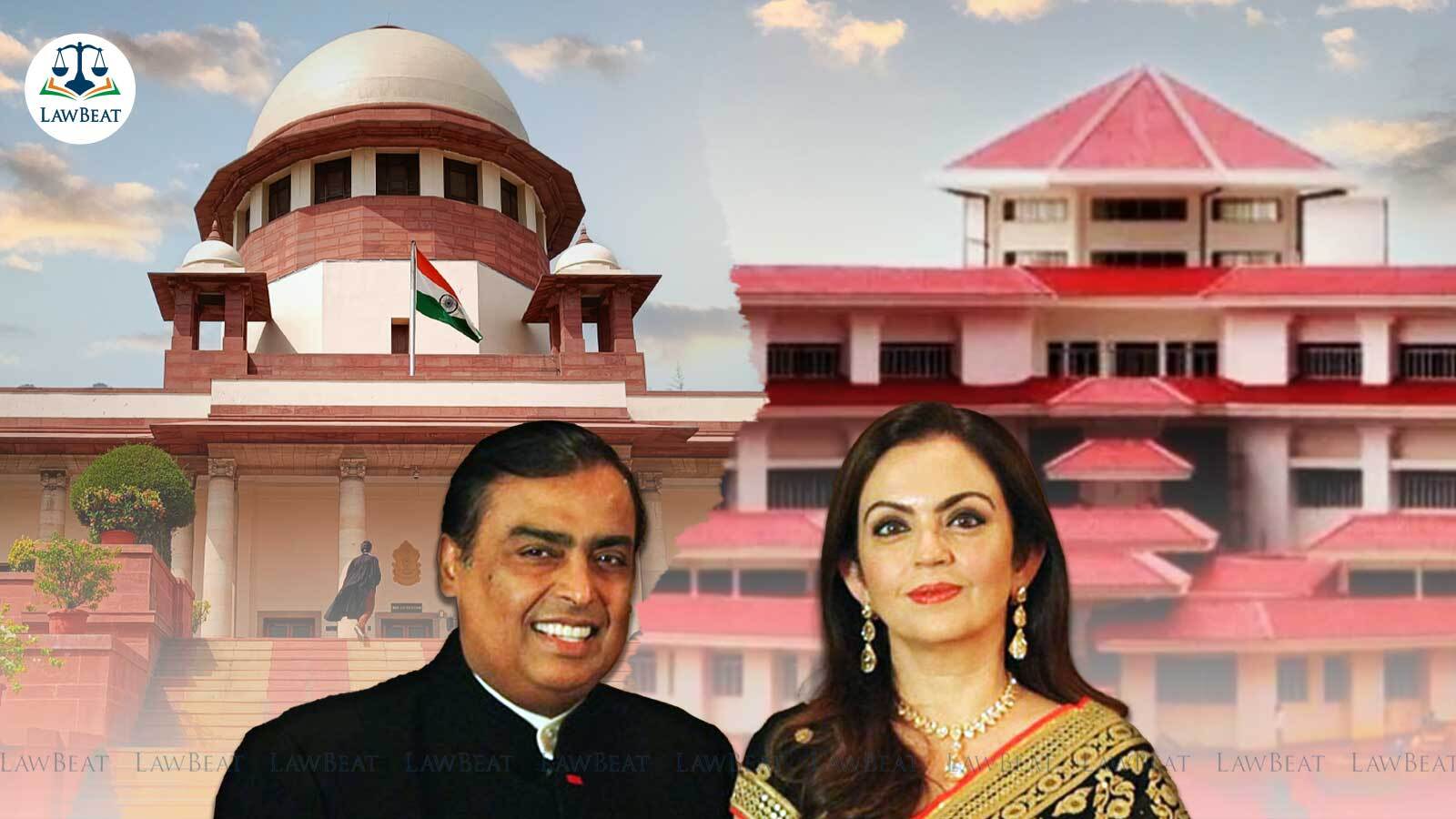Top Court agrees to hear Centre's challenge to Tripura High Court order questioning security cover provided to Mukesh Ambani and family

Central government has challenged a Tripura High Court orders seeking details of the security provided to Ambanis saying that the High Court had no territorial jurisdiction to entertain the PIL in which the said order was passed.
The Supreme Court has agreed to hear an SLP filed by the Central government challenging two orders passed Tripura High Court wherein, the High Court has directed the Centre to place the original file maintained by Ministry of Home Affairs (MHA) regarding threat perception and assessment report of Mukesh Ambani and his family members prepared by it, on the basis of which security has been granted to them.
Solicitor General Tushar Mehta today told a vacation bench of Justices Surya Kant and JB Pardiwala that the security provided to Ambanis has nothing to do with the Tripura government.
A division bench of the High Court by way of the impugned orders has also directed the Central Government to depute a responsible officer to appear before it with the original record, in a sealed cover, on June 28, 2022 for consideration of the High Court.
The two impugned orders were passed by the High Court were passed on May 31 and June 21, and on June 21, the High Court had also observed that ‘no further adjournment shall be granted’ in the matter.
It is the centre's stand that High Court has passed the impugned orders in a PIL filed by an individual person, namely Bikash Saha, who had no locus in the matter and is just a meddlesome interloper, claiming himself to be a social activist and student by profession.
Government has further alleged that said PIL is thoroughly misconceived, frivolous and motivated, where no violation of any fundamental right was even pleaded, but the High Court has sought to exercise its judicial review jurisdiction over a decision, which has been taken by trained experts on public order, individual and national security.
High Court has failed to appreciate that the Ambani family is neither residents of the state of Tripura nor any part of cause of action remotely arising from Tripura existed, and thus the Court had no territorial jurisdiction or subject matter jurisdiction over the matter, the SLP argues.
Centre has further submitted that when the matter was heard by the High Court, the Law officer appearing on its behalf had informed the High Court that a similar PIL petition, with identical prayers, earlier filed before Bombay High Court was dismissed, which order was confirmed by the Supreme Court in an SLP, with slight modifications and as such, the prayers made in the subject writ petition were already adjudicated upon, thus, the issue being no more res-integra, the PIL was liable to be dismissed.
Arguing that PIL jurisdiction is not equivalent to ‘inquisitive jurisdiction’, Centre has submitted that,
"...merely because of a hunch or curiosity, either of the Hon’ble Court or of the PIL petitioner, it was impermissible in law for the Hon’ble High Court to exercise its Article 226 jurisdiction by entertaining a PIL. Furthermore, it was also incumbent upon the Hon’ble High Court to judicially examine and scrutinize the locus of the Petitioner filing the said PIL, before exercising its power of judicial review."
Conclusively, UoI has submitted that High Court has lost sight of the fact that, to provide security cover or not to a civilian on the basis of threat perception is a technical matter which requires the expertise of trained persons manning law, order and security of the State.
"...these decision taken by such experts is not judicially reviewable, much less in a PIL filed in a State where neither of the Respondents reside nor the Petitioner could be said to be aggrieved by the security cover by the Central Government to Respondents 2 & 3...", the SLP submits.
Case Title: Union of India vs. Bikash Saha and Ors
